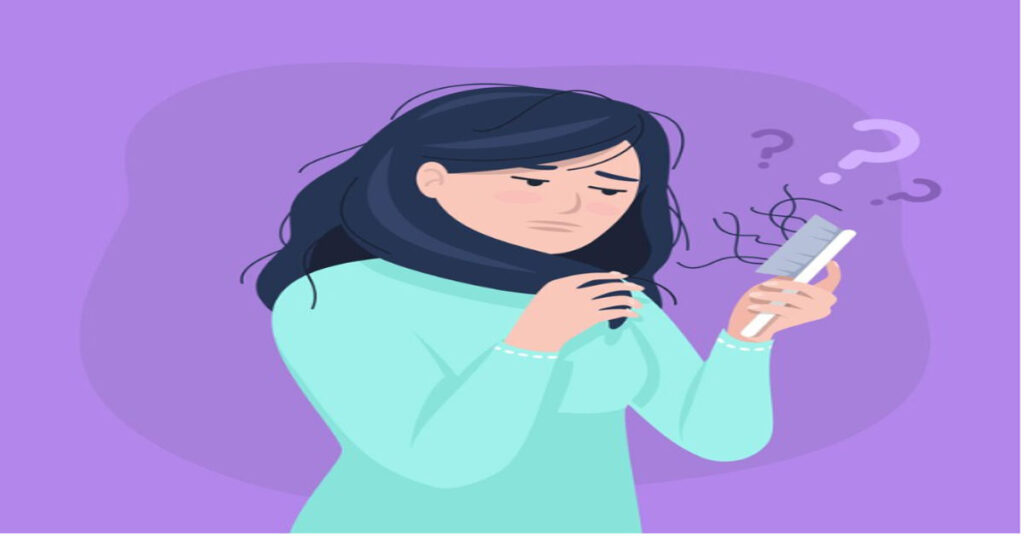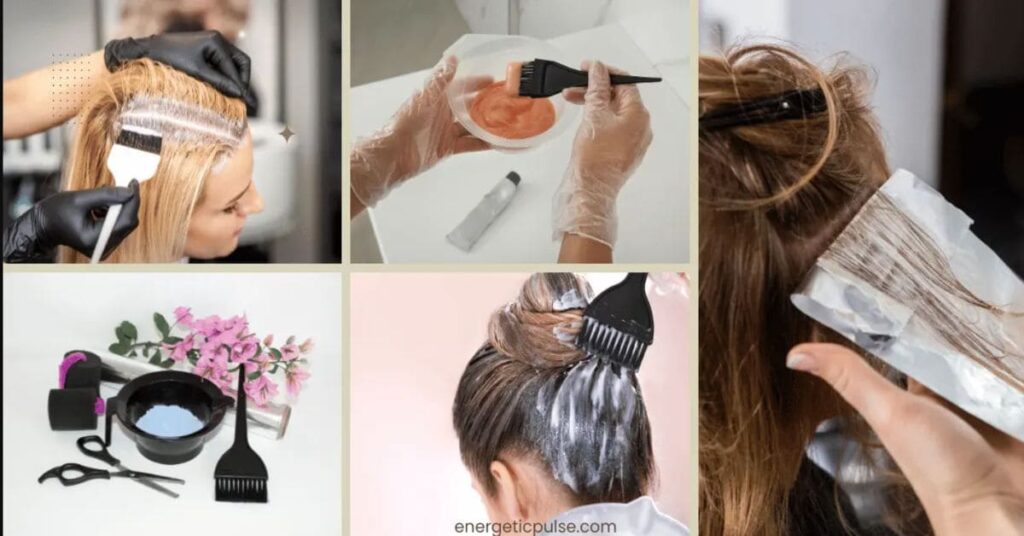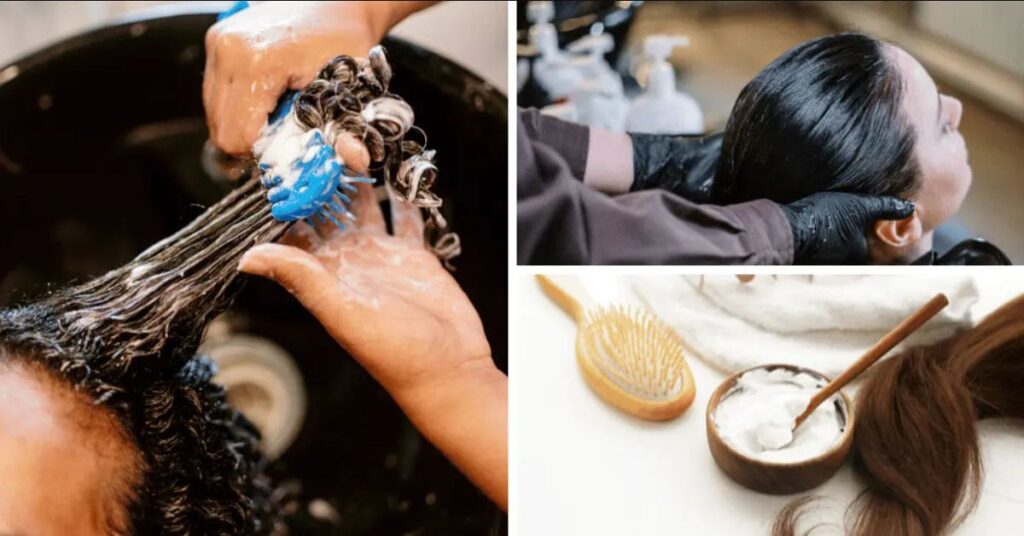While no single food can guarantee to stop hair fall entirely, incorporating certain nutrients into your diet can promote hair health and potentially reduce hair fall. Here are some foods that are rich in essential nutrients known to support healthy hair growth:
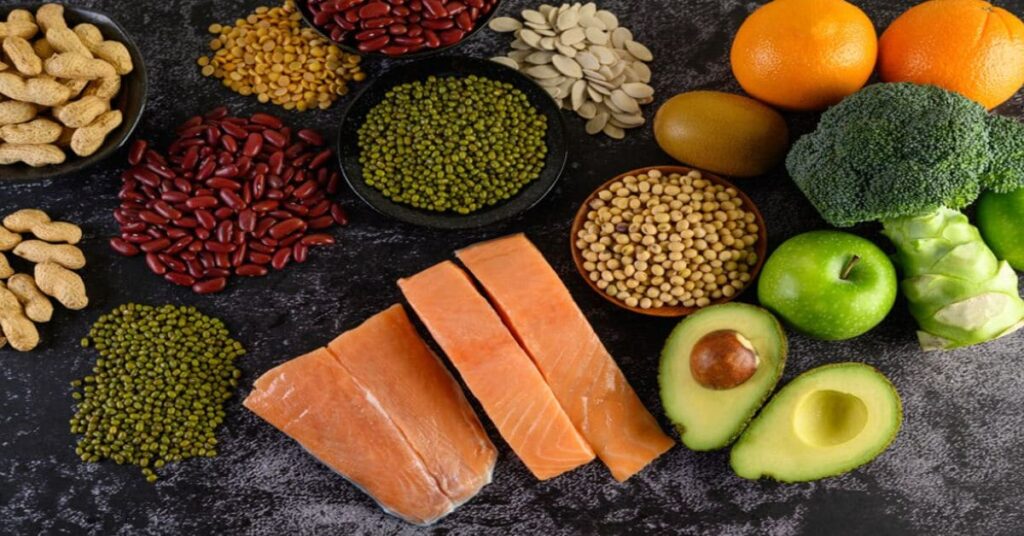
Protein-rich foods
Protein is crucial for hair health because hair follicles are made up of mostly protein, specifically a type called keratin. Including sufficient protein in your diet ensures that your body has the building blocks it needs to maintain strong, healthy hair. Here are some protein-rich foods and their role in promoting hair health:
Lean Meats: Lean meats like chicken, turkey, and lean cuts of beef provide high-quality protein along with essential nutrients like iron and zinc. Iron helps carry oxygen to the hair follicles, promoting healthy hair growth, while zinc helps support the hair follicles and prevent hair loss.
Fish: Fatty fish such as salmon, mackerel, and sardines are excellent sources of protein as well as omega-3 fatty acids. Omega-3 fatty acids are essential for scalp health, as they help reduce inflammation and support the production of oils that keep the scalp and hair hydrated.
Eggs: Eggs are a complete protein source, meaning they contain all nine essential amino acids that the body cannot produce on its own. They are also rich in biotin and other B vitamins, which are important for hair growth and overall scalp health.
Dairy Products: Dairy products like milk, yogurt, and cheese are rich in protein and also provide calcium, which is important for hair growth. Additionally, some dairy products are fortified with vitamin D, which plays a role in hair follicle cycling and may help prevent hair loss.
Legumes: Legumes such as lentils, chickpeas, and beans are excellent plant-based sources of protein. They also provide iron, zinc, and biotin, making them a nutritious option for promoting hair health in vegetarian or vegan diets.
Tofu and Soy Products: Tofu, tempeh, and other soy products are complete protein sources and contain compounds called isoflavones, which may help regulate hair growth cycles and promote thicker, healthier hair.
Iron-rich foods
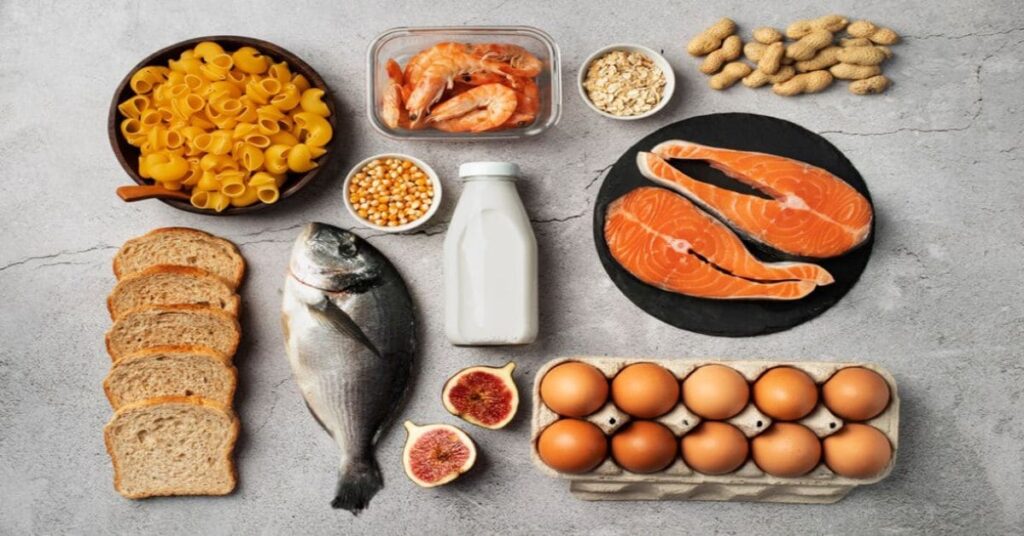
Iron is an essential mineral that plays a crucial role in various bodily functions, including the transport of oxygen in the blood and the production of red blood cells. Iron deficiency can lead to a condition called anemia, which is associated with symptoms such as fatigue, weakness, and hair loss. Including iron-rich foods in your diet can help prevent iron deficiency anemia and promote healthy hair growth. Here’s more detail on iron-rich foods and their importance for hair health:
1. Red Meat: Red meat, such as beef, lamb, and pork, is one of the best sources of heme iron, which is the form of iron most readily absorbed by the body. Heme iron is particularly important for individuals at risk of iron deficiency, as it is absorbed more efficiently than non-heme iron found in plant-based foods.
2. Poultry: Chicken and turkey are good sources of iron, as well as high-quality protein. Consuming poultry regularly can help increase your iron intake while providing essential nutrients for healthy hair growth.
3. Fish: Certain types of fish, such as tuna, salmon, and shellfish like oysters and clams, are rich in heme iron as well as omega-3 fatty acids. Incorporating fish into your diet can help boost your iron levels while supporting scalp health and reducing inflammation, which can contribute to hair loss.
4. Legumes: Plant-based sources of iron include legumes such as lentils, chickpeas, beans, and peas. While the iron in plant-based foods is non-heme iron and not as readily absorbed as heme iron, consuming these foods alongside sources of vitamin C can enhance iron absorption. Legumes also provide fiber, protein, and other nutrients important for overall health.
5. Leafy Green Vegetables: Dark leafy greens like spinach, kale, and Swiss chard are rich in non-heme iron as well as vitamin C, which helps enhance iron absorption. Including these vegetables in your diet can help increase your iron intake while also providing antioxidants and other nutrients that support hair health.
6. Fortified Foods: Many breakfast cereals, bread, and other grain products are fortified with iron and other nutrients. Choosing fortified foods can be a convenient way to increase your iron intake, especially if you have dietary restrictions or difficulty meeting your iron needs through whole foods alone.
7. Nuts and Seeds: Certain nuts and seeds, such as pumpkin seeds, sesame seeds, and almonds, are good sources of iron, as well as protein and healthy fats. Snacking on nuts and seeds or adding them to salads, oatmeal, or smoothies can help boost your iron intake while providing a variety of other nutrients beneficial for hair health.
Omega-3 fatty acids
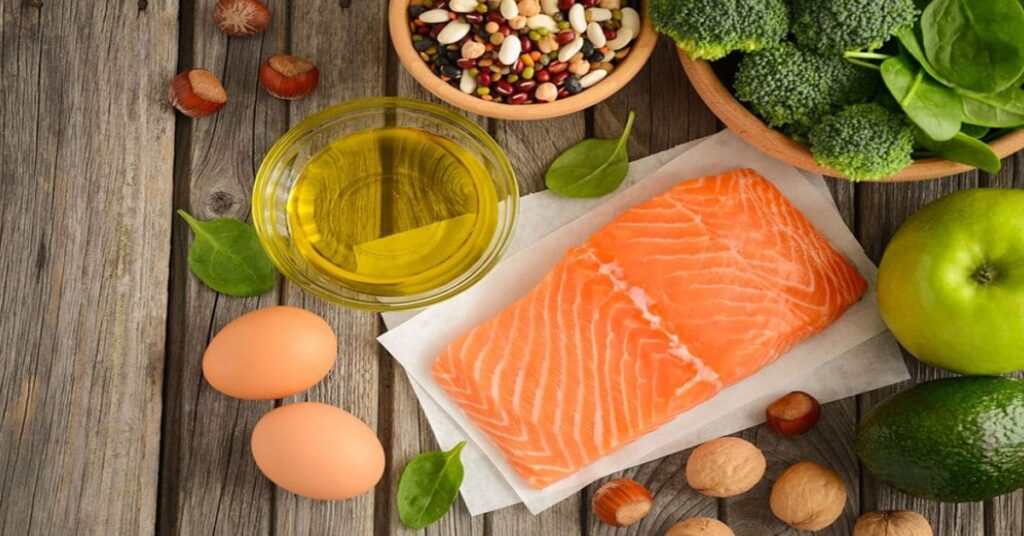
Omega-3 fatty acids are a group of polyunsaturated fats that are considered essential fatty acids, meaning the body cannot produce them on its own and must obtain them from the diet. There are three main types of omega-3 fatty acids: alpha-linolenic acid (ALA), eicosapentaenoic acid (EPA), and docosahexaenoic acid (DHA). These fatty acids play crucial roles in various bodily functions and are particularly important for promoting heart health, and brain function, and reducing inflammation. Additionally, omega-3 fatty acids are beneficial for hair health in several ways:
1. Scalp Health: Omega-3 fatty acids help maintain the health of the scalp by reducing inflammation and promoting circulation. A healthy scalp is essential for supporting the growth of strong, healthy hair follicles.
2. Moisture Retention: Omega-3 fatty acids help maintain the integrity of the hair shaft and prevent dryness by supporting the production of oils that keep the hair and scalp hydrated. This can help prevent issues such as dandruff and brittle hair.
3. Hair Growth: Omega-3 fatty acids have been shown to promote hair growth and reduce hair loss by supporting the health of hair follicles. They help nourish the follicles and improve their function, leading to thicker, fuller hair over time.
4. Anti-inflammatory Effects: Chronic inflammation can contribute to hair loss and scalp conditions such as alopecia areata and dandruff. Omega-3 fatty acids have anti-inflammatory properties that can help alleviate inflammation in the scalp, reducing the risk of hair loss and promoting overall scalp health.
5. Supporting Hair Structure: DHA, one of the omega-3 fatty acids, is a structural component of the hair follicle and plays a role in maintaining the integrity of the hair shaft. Consuming sufficient omega-3 fatty acids ensures that your body has the building blocks it needs to support strong, resilient hair.
Sources of Omega-3 Fatty Acids:
1. Fatty Fish: Fatty fish such as salmon, mackerel, sardines, trout, and herring are excellent sources of EPA and DHA, the most biologically active forms of omega-3 fatty acids.
2. Flaxseeds and Chia Seeds: Flaxseeds and chia seeds are rich in ALA, a plant-based omega-3 fatty acid. Your body can convert ALA into EPA and DHA, although the conversion rate is relatively low.
3. Walnuts: Walnuts are another plant-based source of ALA and provide a convenient way to incorporate omega-3 fatty acids into your diet.
4. Hemp Seeds: Hemp seeds are rich in ALA and also contain a balanced ratio of omega-3 to omega-6 fatty acids, which is important for overall health.
5. Algal Oil Supplements: For individuals following a vegetarian or vegan diet, algal oil supplements derived from algae are available and provide a direct source of EPA and DHA.
Incorporating omega-3-rich foods into your diet or taking supplements can help support overall health and promote healthy hair growth.
Vitamin C:
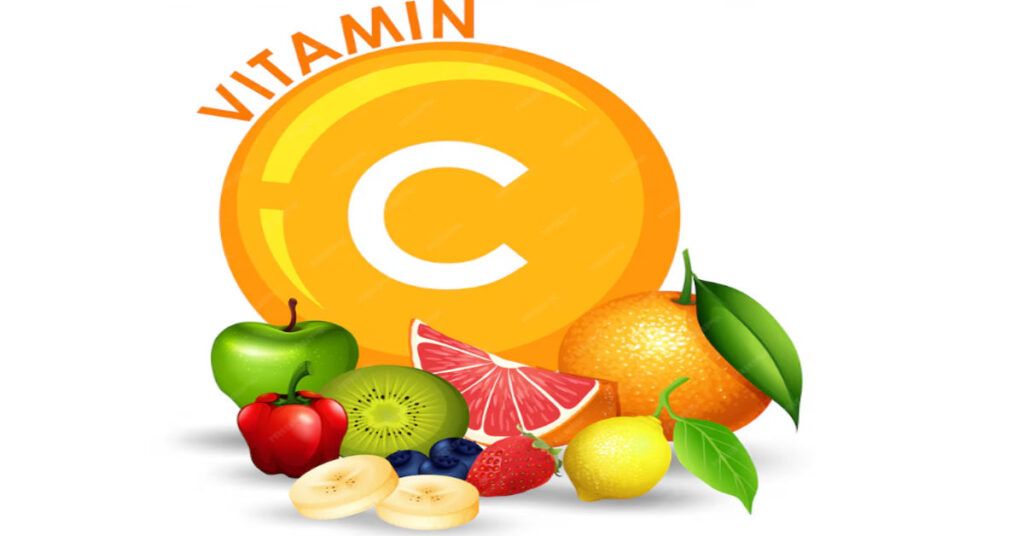
Vitamin C, also known as ascorbic acid, is a water-soluble vitamin that serves many important functions in the body. Here’s why vitamin C is essential for healthy hair:
- Collagen Production: Vitamin C plays a crucial role in the production of collagen, a protein that is essential for the structure and strength of hair follicles. Collagen helps support the hair shaft and prevents it from becoming brittle and prone to breakage.
- Antioxidant Protection: Vitamin C is a potent antioxidant that helps protect hair follicles from damage caused by free radicals. Free radicals can contribute to hair aging and hair loss, so consuming adequate vitamin C helps maintain the overall health of the hair and scalp.
- Iron Absorption: Vitamin C enhances the absorption of non-heme iron, the type of iron found in plant-based foods. Iron is necessary for transporting oxygen to the hair follicles, and vitamin C helps ensure that your body can effectively utilize iron for optimal hair growth.
- Scalp Health: Vitamin C supports a healthy scalp by promoting blood circulation and collagen production. A well-nourished scalp is essential for providing a conducive environment for hair growth.
Sources of Vitamin C:
- Citrus Fruits: Oranges, lemons, limes, grapefruits, and tangerines are all excellent sources of vitamin C.
- Berries: Strawberries, raspberries, blueberries, and blackberries are rich in vitamin C and other antioxidants.
- Kiwi: Kiwi is a tropical fruit that is particularly high in vitamin C.
- Bell Peppers: Red, yellow, and green bell peppers are excellent sources of vitamin C.
- Leafy Greens: Spinach, kale, and other leafy greens contain vitamin C along with other nutrients important for hair health.
- Broccoli: Broccoli is a cruciferous vegetable that provides vitamin C as well as other vitamins and minerals beneficial for hair growth.
